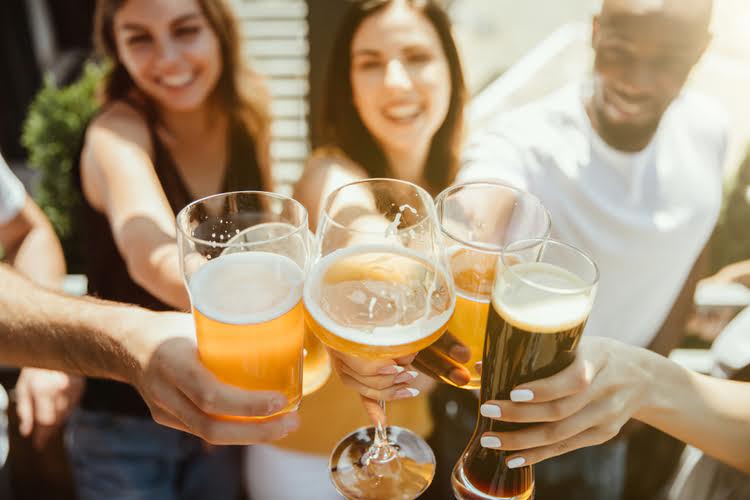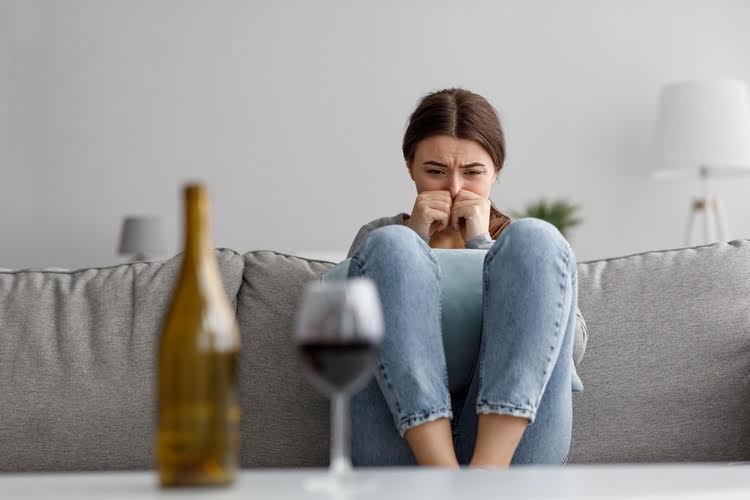You might arrive at a friend’s party in an upbeat and energized mood, but by the end of the night, you’re feeling sick and regretting your decisions. You might wonder why you always seem to make the same mistakes. Learn how Thrive’s home-based program, centered on naltrexone, helps you take control of alcohol and rebuild your confidence. It’s important to keep in mind that you’re not alone in your journey. Through working with a specialist, you ensure that the care you receive will be as effective as possible. Alcohol poisoning happens when heavy alcohol use affects the central nervous system and slows down one’s breathing and heart rate.

Are You Covered for Addiction Treatment? Find Your Insurance.
- Outside of the physical risks, binge drinking can lead to mental health problems, social and legal consequences, and an increased likelihood of addiction.
- Getting started with drinking less often involves making small changes to your surroundings, like taking a different route home or moving alcohol out of sight.
- Bingeing has both short- and long-term risks, including alcohol poisoning, increased risk of a stroke or heart attack, and damage to the heart, brain, and liver.
- Patience and persistence in these lifestyle changes can improve health outcomes and a stronger foundation for sobriety.
Moderate alcohol consumption is generally considered safe, unless you are underage, pregnant, or have a health condition. At the end of the day, one of the most important tools you have at your disposal is self-compassion. Instead of criticizing yourself for having a hard time or slipping up and having a drink, remember that no how to stop binge drinking one’s perfect.
Dopamine Detox Timeline: A Step-by-Step Guide to Reclaiming Focus

Group therapy or support groups for individuals dealing with alcohol addiction. Reaching out to Palm Coast Treatment Solutions is one of the most important steps of your journey to recovery. A caring professional is waiting for your call to be your guide to addiction-free living.

Developing Effective Strategies
- It is important to pay attention to one’s alcohol intake and alcohol intake frequency to recognize the signs of a binge drinker.
- Like your liver, your kidneys can only handle so much of a workload before they can no longer function normally.
- If you don’t want to binge drink, don’t go places where everyone is getting trashed.
- Outpatient counseling sessions offer flexibility, allowing you to maintain your daily responsibilities while attending scheduled appointments.
In our digital world, support is often right at your fingertips. Science-backed apps like Reframe are designed to help you change your habits from the ground up. Using a neuroscience-based approach, Reframe offers daily readings, progress tracking, and a supportive community to help you build a healthier relationship with alcohol. For more actionable advice, you can also find books and articles that offer science-backed steps to stop binge drinking and manage triggers effectively. These resources can serve as your daily guide, providing motivation and practical techniques whenever you need them. The term “binge drinking” gets thrown around a lot, but what does it actually mean?
Align your goals to what you’d like to achieve with regards to your relationship with alcohol and your image of your ideal self. Monument treatment plans connect you with licensed physicians and therapists who can help you set goals based on your needs and preferences. Our next tip is an example of an achievable and attainable goal you can set to break free of binge drinking patterns. Binge drinking and heavy drinking are related yet distinct concepts, each with its definition and effect on one’s health/daily life. Binge drinking is defined as excessive drinking in one session/short period of time to become drunk or impaired. Heavy drinking, on the other hand, is defined as regularly consuming large quantities of alcohol over a long time.
- It allows you to go into these situations with a plan instead of just going with the flow.
- Replace drinking with healthier stress-management habits, such as physical exercise, meditation, or engaging in hobbies.
- Set a number and an end date when setting goals for reducing your alcohol intake.
- Therapy and counseling offer professional guidance and support, equipping individuals with the tools necessary to overcome binge drinking and maintain long-term recovery.
- Thus, liver problems are an inevitable long-term effect of prolonged drinking habits.
Long-Term Health Problems
By replacing binge drinking with fulfilling activities, you can redirect your focus, build new connections, and develop a more satisfying and alcohol-free lifestyle. Remember that seeking support is not a sign of weakness but a proactive step towards achieving your goal of sobriety. Whether it’s relying on the understanding of friends and family or seeking professional guidance, having a support system can significantly increase your chances of success.
Don’t let finances stand in the way of your recovery. We’re here to help you get the care you need.
By combining these strategies, individuals can enhance their ability to maintain sobriety and lead a fulfilling life free from addiction. Relapse prevention counseling, often involving cognitive-behavioral therapy (CBT), equips individuals with skills to manage triggers and build resilience. Techniques like mindfulness and motivational interviewing are also beneficial. Understanding the anatomy of dependency and the intertwining of co-dependency and addiction is crucial for effective relapse prevention.
What is a relaxing drink to replace alcohol?
This can contribute to patterns of excessive alcohol consumption. Alcohol can take a serious toll on your body, and binge drinking carries a lot of risks. Binge drinkers and people who drink excessively have a larger chance of developing several physical and mental health issues. However, even if you’re drinking less alcoholism symptoms than this in one session, if your binge drinking is having unwanted consequences in your life, it may be time to reassess your drinking habits. Binge drinking is a dangerous social behavior that can lead to the deterioration of the mind and body. Frequently consuming large amounts of alcohol in a short amount of time is a red flag for binge drinking habits and can quickly develop into a full-blown addiction.
